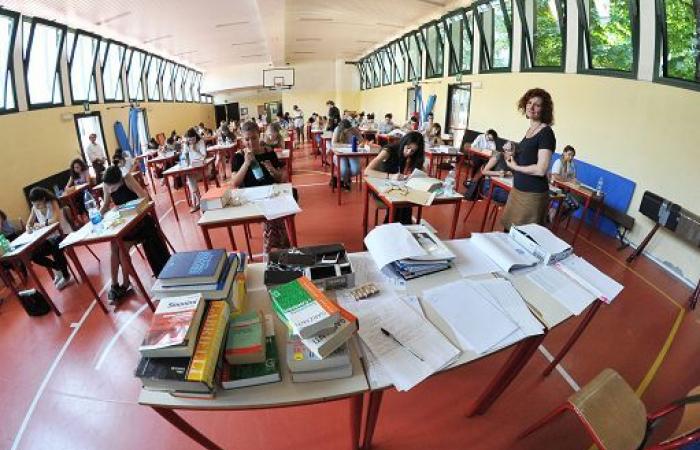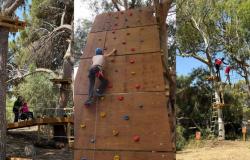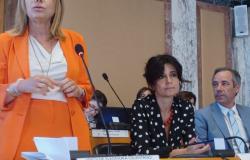Rome, 17 June. (askanews) – It’s the week of the 2024 Maturity exam. It starts the day after tomorrow, Wednesday 19 June from 8.30 am, with the first paper, the Italian theme, then on Thursday the second paper and then the interviews. Over 520 thousand students involved. In recent days, the Minister of Education and Merit Giuseppe Valditara explained that in the exam “what is important is the elasticity of reflection”, or “possessing what the years of school have left you, having understood and understood, knowing how to make connections. Not the notionalism, which is of no interest.”
THE “TOTO TRACCIA” – Last hours of revision therefore while, like every year, the “toto trace” has been going crazy on social media and on various specialized sites for days now, to try to predict the authors and themes chosen for the first writing by the Ministry of Education and Merit. For the analysis of the text – Moravia and Quasimodo, chosen in 2023, are to be excluded – Alessandro Manzoni (150th since his death), Italo Calvino (100 years since his birth) or Gabriele D’Annunzio (160th since his birth, but in 2023) could come out. ; also pay attention to Dante and Pirandello. For the argumentative text, popular themes are Fascism (100 years since the death of Giacomo Matteotti), the ethical problems of science (120 years since the birth of Robert Oppenheimer), the role of telecommunications (150 years since the birth of Guglielmo Marconi), the 80 years since the Normandy landings. I cover the topic of Current Affairs, highly quoted Artificial Intelligence with its implications, a topic on peace given the wars in Ukraine and the Middle East (and taking inspiration from the 110 years since the beginning of the First World War), the importance of social networks (it’s been 20 years since the birth of Facebook). The issue of violence against women and gender equality and climate change are also always in the foreground.
For the second written test, the tom-tom on social media concerns only the feared version of Greek from the Classical High School: Plato, Plutarch and Thucydides are the authors on whom the most bets are placed.
THE NUMBERS – This year there will be 526,317 students involved in the tests (512,530 internal candidates and 13,787 external), while there are 14,072 commissions, for a total of 28,038 classes. The breakdown of candidates by type of study path is as follows: High schools: 266,057; Technical Institutes: 172,504; Professional institutes: 87,756. The examination commissions are made up of an external President, three external members and three internal members of the school institution.
THE DATES – We therefore start on Wednesday 19 June, at 8.30 am, with the opening of the highly secret “electronic package” sent by the Ministry containing the traces of the first writing, in Italian, common to all addresses (7 traces of three types: two Text analyses; three of Argumentative texts; two of Current affairs; duration 6 hours). We continue on June 20th with the second test, which concerns the disciplines characterizing the individual study paths (Greek in Classics, topics of Mathematics, Algebra and Geometry in Scientific: duration 6 hours). An interview is then scheduled with the aim of ascertaining the achievement of the educational, cultural and professional profile of each candidate (a short report or multimedia work of the experiences carried out within the PCTOs will be provided; the information contained will be taken into account in the student’s CV). In the institutes where the EsaBac and EsaBac techno paths are present and in the high schools with Chinese, Spanish and German international option sections, a third written test is scheduled for Tuesday 25 June from 8.30 am.
THE ORAL INTERVIEW – After the first and second tests, the exam will continue with the oral exams, starting from Monday 24th (but in the institutions that will host the polling stations for the run-offs of the municipal elections the start of the interviews could be postponed to Tuesday 25th or Wednesday 26 June). The interview takes place starting from the student’s analysis of the material chosen by the commission, which can be a text, a document, an experience, a project, a problem. The student must then present – with a short report or a multimedia work – the experiences carried out as part of the courses for transversal skills (PCTO, former school-work alternation) and finally we will move on to questions on Civic Education. THE “MASTERPIECE” – Among the novelties of this year, there is the “Student Masterpiece”, a tool introduced by the “Guidelines for Orientation 2022”, designed to enhance the skills acquired by students in the perspective of orientation even in extra-scholastic environments, and which offers a complete picture of their educational and personal path, taking into account the progress and skills accumulated during the school year. The “masterpiece” must be done by all students in the last three years of high school, it must be uploaded to the student’s digital portfolio, but in any case it will not be the subject of the exam interview and will not be included directly in the student’s CV, which the Commission takes into account when carrying out the interview.
MOBILE PHONES, PCS AND INTERNET – The use of mobile phones, smartphones and smartwatches of any kind will be strictly prohibited during the written tests; devices capable of consulting files, sending photos or images; infrared or ultraviolet light equipment; portable personal computers capable of connecting to external networks. Only scientific and/or graphing calculators are permitted. Violation of these provisions will result in exclusion from all exams.
THE MARKS – The overall final score of the Maturity is expressed in hundredths (minimum 60/100) and is the result of the sum of the points attributed by the commission to the written tests and the interview and the points acquired for the scholastic credit by each candidate, for a maximum of 40 points. The commission has a maximum of 20 points for the evaluation of each of the written tests and a maximum of 20 points for the evaluation of the interview. The commission can unanimously award the praise with justification.
SUPPLEMENTARY TESTS – Candidates who, following absence due to illness, duly certified, or due to a serious documented reason, recognized as such by the commission/class, find themselves absolutely unable to participate in the written tests, are given the right to take the tests themselves in the supplementary session. The first supplementary written test takes place on Wednesday 3 July 2024, from 8.30 am; the second supplementary written test takes place on Thursday 4 July 2024.






